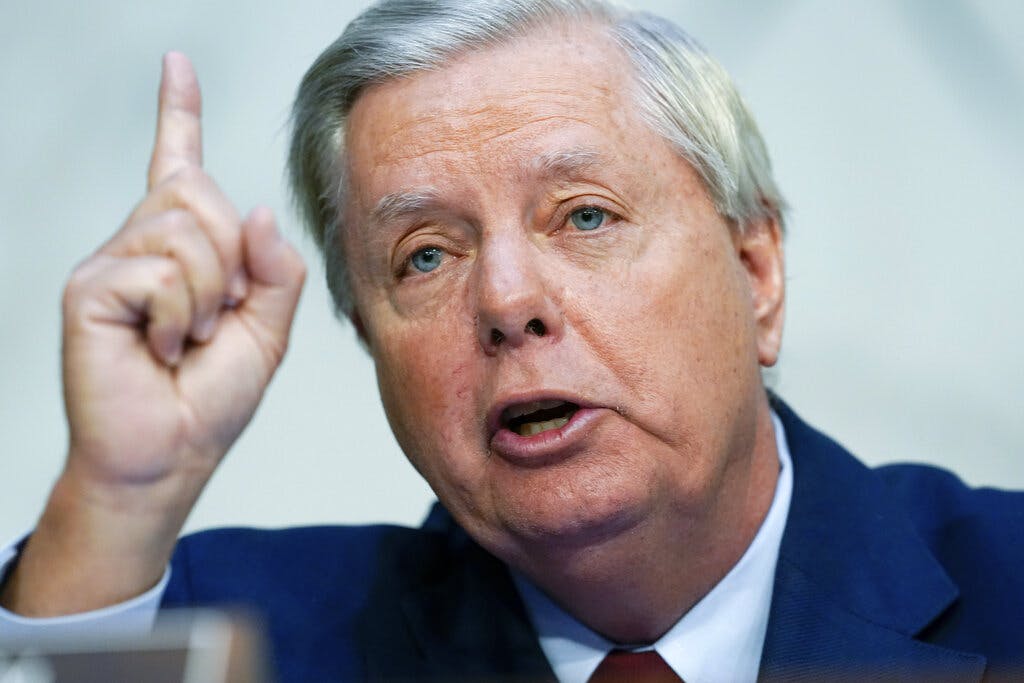Prosecutors Press the Case That Lindsey Graham Is Not a ‘Super-Citizen’
A fierce battle is under way in the effort to force Senator Graham before a Georgia grand jury despite his invocation of the Speech and Debate Clause.

A fierce battle is under way in the effort to force Senator Graham before a Georgia grand jury despite his invocation of the Speech and Debate Clause, enshrined in the Constitution to shield lawmakers from inquisition.
Mr. Graham, claiming the prerogative of a lawmaker, argues he is “immunized.” He cites the clause of the Constitution that, in Article 1, Section 6, says of the Senators and Representatives that “for any Speech or Debate in either House, they shall not be questioned in any other Place.” Meaning no tribunal save for their own camera of Congress shall interrogate national lawmakers in the performance of their duties.
Prosecutors say Mr. Graham’s effort to lay claim to that protection is “risible” and amounts to the creation of a category of “super-citizens” possessed of undue protection capable of acting with impunity. They call Mr. Graham’s opposing position “extreme.”
The criminal investigation into 2020 election interference in the Peachtree State has become the setting for a showdown over the clause. At issue is whether the matters about which Georgia seeks to question Mr. Graham — including phone calls to the secretary of state, Bradford Raffensperger — are protected by the clause.
The subpoena alleges that “During the telephone calls, [Graham] questioned Secretary Raffensperger and his staff about reexamining certain absentee ballots cast in Georgia in order to explore the possibility of a more favorable outcome for former President Donald Trump.”
The Speech and Debate provision commands that senators and representatives “Shall in all Cases, except Treason, Felony and Breach of the Peace, be privileged from Arrest during their Attendance at the Session of their respective Houses, and in going to and returning from the same; and for any Speech or Debate in either House, they shall not be questioned in any other Place.”
The question of whether Mr. Graham’s subpoena should be quashed, wholly or in part, has pinballed between a federal district judge, Leigh Martin May, and the riders of the United States Court of Appeals for the 11th Circuit. The latter has ruled that the bounds of the clause need to be mapped out before the question of Mr. Graham’s participation is settled.
A pitched battle of the briefs has ensued, with Mr. Graham staking out the maximalist position that the Clause “applies to any other topic this Court, the District Attorney, or Amici can invent, such as media appearances.” He argues that “A Senator’s investigation into a State’s absentee-ballot process and alleged voting irregularities in the State … is quintessentially protected legislative activity.”
In its filing, an assistant district attorney, F. McDonald Wakeford, highlights “the historic limitations placed upon the Speech or Debate Clause by the Supreme Court.” The Supreme Court has long held that the clause applies as long as the lawmaker is “acting in the sphere of legitimate legislative activity.” The circumference of that sphere has long been a matter of debate.
For his part, Mr. Graham maintains that his phone calls were “quintessentially protected legislative activity” because they were conducted in advance of his vote to certify the 2020 election, a duty mandated by the Constitution’s 12th Amendment. He also suggests that his foray into the Georgia vote was a performance of due diligence for future votes on legislation touching on elections.
Mr. Graham suggests that his telephonic adventure in Georgia falls in a long legislative line of activities: “Investigations, whether characterized as formal and informal, have been an integral part of representative government from our Founding.” In that tradition, “Senator Graham also co-sponsored legislation to amend the Electoral Count Act to correct flaws he discovered during his investigation.”
In respect of the calls, Mr. Wakeford argues that “Inquiring into possible routes of litigation, whether pursued by another state’s elections officials or by the Trump Campaign itself, cannot possibly fall within the ambit of “manifestly legislative activity” protected by the Clause.
Mr. Graham’s lawyers owe a reply by Wednesday, after which Judge Martin will decide whether and to what extent the senator will answer questions under oath.

